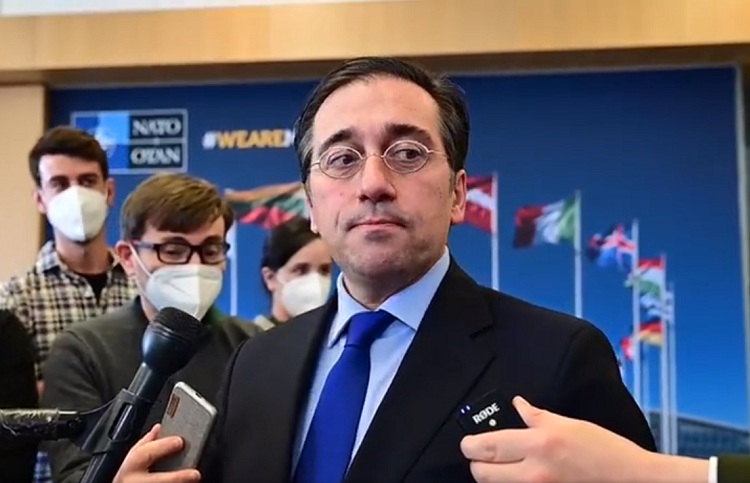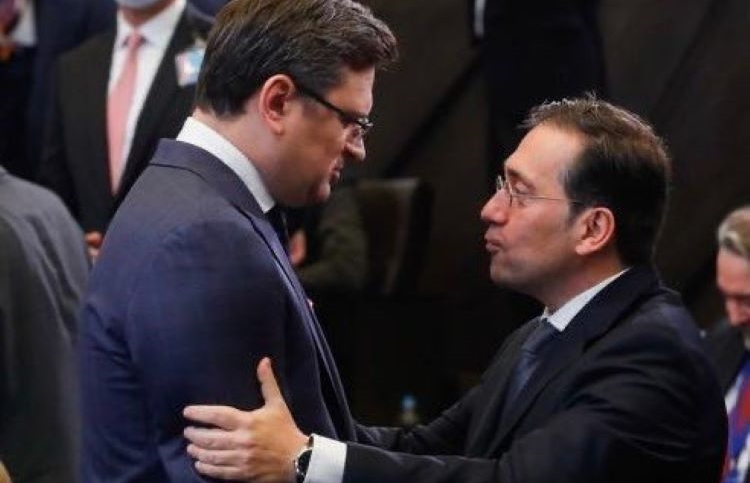Eduardo González
The Minister of Foreign Affairs, José Manuel Albares, begins tomorrow a working tour of Mauritania and Senegal, two priority countries for Spanish Cooperation for decades and two examples of stability in the Sahel region and, therefore, in the so-called “Southern Flank of NATO”.
The tour will begin tomorrow and will continue on Wednesday in Nouakchott, capital of Mauritania. On the same day, Albares will travel to Dakar, capital of Senegal, from where he will return to Madrid on Thursday.
Mauritania, located only 900 kilometers from the coasts of the Canary Islands, maintains very close relations with Spain in areas such as fishing, development cooperation, the fight against irregular immigration and defense and the fight against terrorism. In addition, Mauritania has been a priority country for Spanish Cooperation since 1995 and is listed in the directory of the Spanish Agency for International Development Cooperation (AECID) within the group of Least Developed Countries of Association. Queen Doña Letizia visited the country on May 31 and June 2, on her seventh cooperation trip since 2015.
The President of the Islamic Republic of Mauritania, Mohamed Ould Cheikh El Ghazouani, paid a working visit to Spain on March 17, marked, among other issues, by the country’s commitment to security and defense in the Sahel, in the midst of the debate on the future of the missions in Mali and just a few days after the Russian invasion of Ukraine. Last February, France and other allied countries announced the withdrawal of their troops from the international missions Barkhane and Takuba in Mali due to their disagreements with the military junta in Bamako. Spain is not part of these missions, but currently provides the largest contingent (500 troops, 24% of the total) of the European training mission EUTM Mali.
One of the major problems in Mali (which shares more than 2,200 kilometers of border with Mauritania) and in the Sahel region as a whole is the growing presence of Russia through, above all, the mercenaries of the Wagner Group. For this reason, Spain has been insisting for years, especially during the last NATO Summit in Madrid, on the need to include the Southern Flank among the Alliance’s preferences. Shortly before the Summit, Albares denounced that “unfortunately, threats from the south are increasingly Russian threats from the south”, while the Minister of Defense, Margarita Robles, warned that “Russia’s presence in African countries is more than proven in the Central African Republic and Mali and other countries”.
Finally, the Madrid Strategic Concept, approved at the Summit, warns that “NATO’s southern neighborhood, in particular the Middle East, North Africa and Sahel regions, faces interconnected security, demographic, economic and political challenges” that provide “fertile ground for the proliferation of non-state armed groups, including terrorist organizations, and also allows for destabilizing and coercive interference by strategic competitors.” Mauritania, a NATO partner country (the only one in Africa), participated in the Madrid Summit and even attended a working dinner of NATO foreign ministers at which the new approach in the southern neighborhood was discussed.
Senegal
As for Senegal, the last high-level contact took place in April 2021, when the President of the Government, Pedro Sánchez, and the President of Senegal, Macky Sall, reaffirmed in Dakar (as part of an African tour of the Chief Executive) their commitment to work in favor of “regular and orderly migration” and to fight “against clandestine emigration networks”.
At the same meeting, the two leaders signed two Memoranda of Understanding (MoUs) on migration management and governance and on safe, regular and orderly migration, as well as a Joint Declaration on the fight against irregular immigration, following the signing, in November 2020, of the bilateral Agreement on Social Security. The Senegalese community in Spain is the largest sub-Saharan African community in our country, with 71,000 inhabitants.
In addition, Spain has troops from the Guardia Civil and the National Police Corps in Dakar, as part of the MARFIL operation to support multinational operations in the Sahel. Senegal is also an important focus for Spanish culture in Sub-Saharan Africa, especially since December 2021, when Queen Letizia inaugurated the new Instituto Cervantes center in Dakar, the first in the region.







